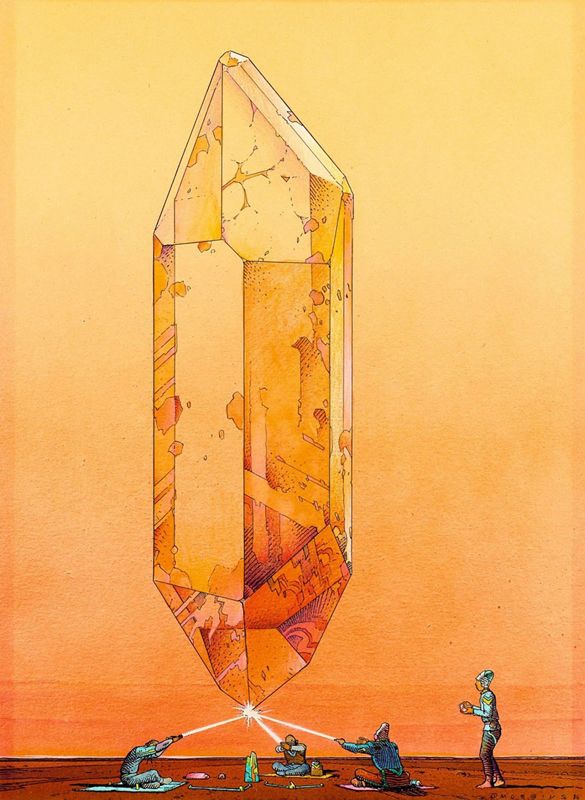Mainnet launch
Arielcoin addresses the danger that most cryptocurrencies face.

In cybersecurity circles, we call it Q-day: the day when quantum computers will break the Internet.
Our current Internet architecture relies on a combination of public-key cryptography and elliptic curve cryptography. Public-key encryption systems allow two parties to send secret messages online but need a mathematically related key to the data, like a lock and key. These algorithms are used in everything from securing online banking to authentication on social networks.
Quantum computers are infinitely faster at solving specific problems, such as factoring large numbers. That’s how encryption keys are generated in elliptic curve algorithms. So if an eavesdropper had access to a quantum computer, they could decrypt any communication secured by these algorithms. This kind of attack isn’t possible with classical computers.
To avert this catastrophe, the researchers advising governments, businesses, and the public call for a coordinated effort to prepare for Q-day. The result will be systems that use encryption that can withstand quantum-computer attacks—and already, several protocols are being developed to do just that.
Efforts to build quantum-robust systems go beyond military and government encryption.
Our project focuses on using these technologies in a business context, proving ownership of objects and transactions on the blockchain.
Q-day could happen tomorrow, or it might be years away. The race is on to protect the Internet from quantum machines.
Arielcoin uses the CRYSTALS-Dilithium signature algorithm and cannot be cracked even with the most advanced quantum computers.
Introduction
Dilithium is a digital signature scheme that is strongly secure under chosen message attacks based on the hardness of lattice problems over module lattices. The security notion means that an adversary having access to a signing oracle cannot produce a signature of a message whose signature he hasn’t yet seen, nor produce a different signature of a message that he already saw signed. Dilithium is one of the candidate algorithms submitted to the NIST post-quantum cryptography project.
We are using the Dilithium3 parameter set, which—according to a very conservative analysis—achieves more than 128 bits of security against all known classical and quantum attacks.
Scientific Background
The design of Dilithium is based on the “Fiat-Shamir with Aborts” technique of Lyubashevsky which uses rejection sampling to make lattice-based Fiat-Shamir schemes compact and secure. The scheme with the smallest signature sizes using this approach is the one of Ducas, Durmus, Lepoint, and Lyubashevsky which is based on the NTRU assumption and crucially uses Gaussian sampling for creating signatures.
Because Gaussian sampling is hard to implement securely and efficiently, Dilithium developers opted to only use the uniform distribution.
Dilithium improves on the most efficient scheme that only uses the uniform distribution, due to Bai and Galbraith, by using a new technique that shrinks the public key by more than a factor of 2. To the best of our knowledge, Dilithium has the smallest public key + signature size of any lattice-based signature scheme that only uses uniform sampling.

Hardfork that enables post-quantum safe smart contracts.
EVM, Solidity
Make sure to download the latest core.
A post-quantum non-fungible token platform is a distributed ledger that is designed in such a way that users can create tokens that are uniquely identifiable.
This means that any exchange or transfer of ownership cannot change the token’s identity, which assures users of its reliability, security, and privacy.
Your tokens will be protected against counterfeiting, tampering, and hacking. The platform will also be immune to quantum and other future hacking methods, rendering it far more secure than current blockchains.
Android and iOS applications to store and exchange Ariel coins.
We will integrate Multi-signature wallet functionality into all wallets, so it is possible to hold more than one set of keys and to share funds between members of a group.
We have a strong partnership board with strong connections on various platforms and individuals who can help us with the listing, marketing, publicity, and other things. We will also apply for investment using coins as a source of funding to grow our team and infrastructure.
The idea is to create a social network that doesn’t rely on a third party to store and process the data.
The main advantages of such a social network are the lack of a single point of failure, better privacy protection, the ability to use your own nickname without anyone stopping you or asking for your real name, and not relying on advertisers who are always interested in increasing their profits.